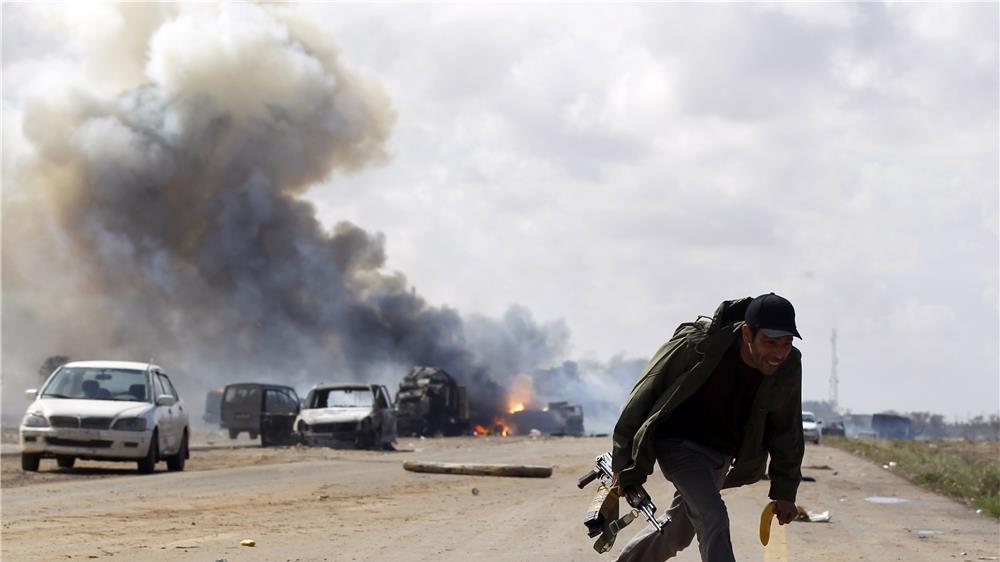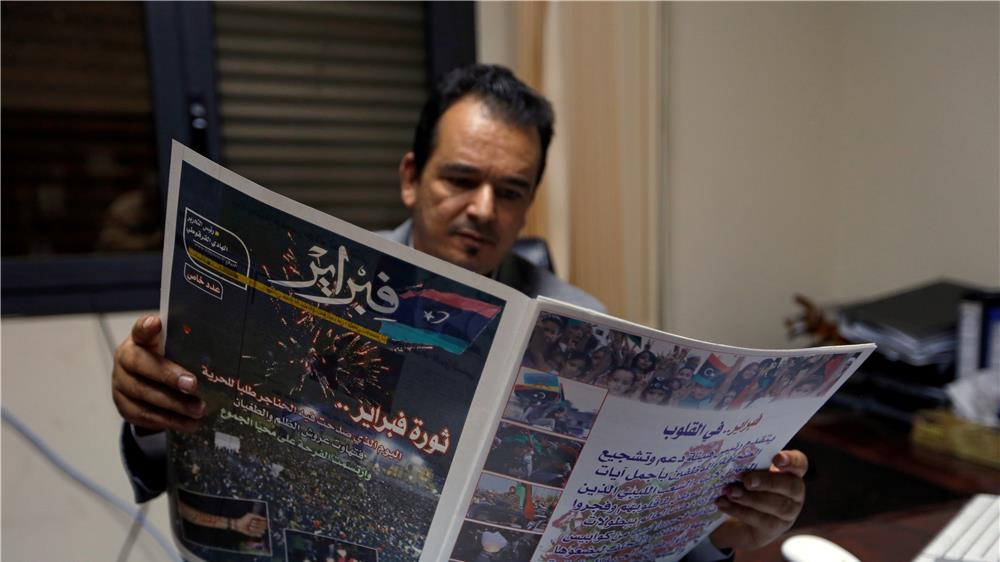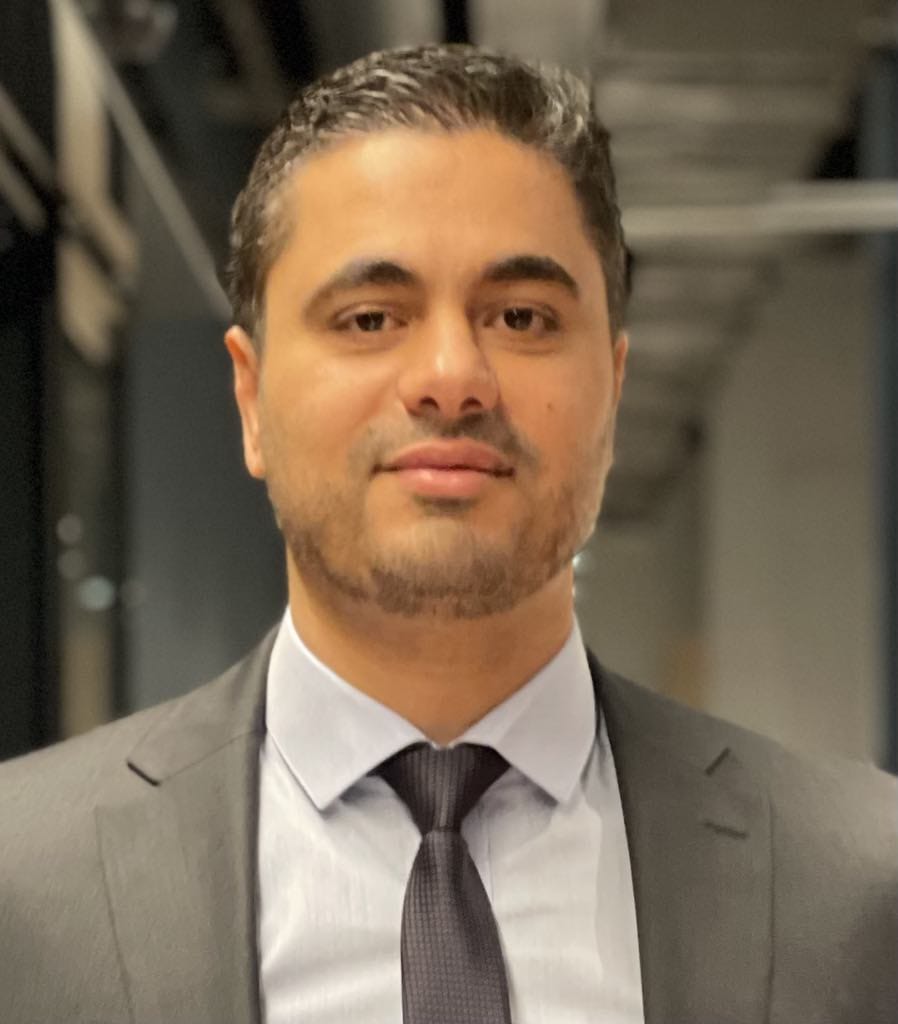"يراقب بقلق تلك الطائرة الحربية في الأجواء وهي تقصف مواقع عدة، يتحرك بين المباني المتهالكة حاملاً كاميرته بحذر، لعل الحظ يحالفه ويلتقط مشهداً مميزاً. فجأة، تتهاوى تلك الطائرة من السماء بعد إصابتها، فيوثق بعدسة كاميرته لحظة سقوطها وخروج الطياريْن منها بالمظلات ليسقطا في عرض البحر.
حدثٌ وثَّقه الشاب الليبي الثلاثيني سراج الدين مختار الذي مارس الصحافة دون دراسة، مبتدئاً طريقها من بوابة المواطنة الصحفية، ليوثِّقَ العديد من الأحداث خلال الاشتباكات التي اندلعت في بنغازي عام 2014 بين قوات اللواء المتقاعد خليفة حفتر ومجموعات الثوار.
لا يوجد تاريخ محدد لدخول صحافة المواطن -أو ما يعرف بالإعلام البديل- إلى ليبيا، لكنه برز بشكل واضح في ثورة 17 فبراير 2011 وما صاحبها من توثيق لأغلب أحداثها، بل كان إعلام المواطن هو الوسيلة الأولى لنقل الوقائع في تلك الفترة نظراً لصعوبة وصول الصحفيين إلى الكثير من أماكن الاقتتال والاشتباك، بالإضافة إلى عدم وجود أي وسائل إعلام محلية في ليبيا خلال تلك الفترة ما عدا التابعة لنظام الزعيم الليبي الراحل معمر القذافي.
انتشاروتوثيق
مع انطلاق الثورة الليبية لجأ المقاتلون والمواطنون على حد سواء إلى توثيق ما يحدث عبر كاميرات بدائية ما لبثَت أن تطورت رويداً رويداً، لتفتح الأحداثُ البابَ أمام دخول المواطنين الصحفيين عالم نقل المعلومة عبر وسائل الإعلام البديل.
ومع انتهاء أحداث الثورة وما لحقها من إنشاء العديد من وسائل الإعلام المحلية المختلفة، لم يتوقف هذا النوع من الإعلام، بل في كثير من الأحيان أصبح المصدر الأول لأخبار جُل الوقائع والحروب التي حدثت في شتى مناطق البلاد.
لحظات فارقة
يقول مختار الذي ترك عمله كمواطن صحفي عقب انتهاء الحرب "لحظة لا تغيب عن ذهني في توثيقي لمجريات المعارك، كانت في بداية فبراير/شباط 2016 حين أسقط الثوار طائرة تابعة لقوات حفتر، وهو حدث مفاجئ.. كانت الكاميرا بيدي في تلك اللحظة فوثقت اللحظات التي أعقبت سقوط الطائرة وهبوط الطيارين بالمظلات، أذكر يومها كيف انتشر الخبر بين وسائل الإعلام بين مثبت له وناف، حتى جاءت صورنا لتصنع الخبر الذي لا يقبل النفي.. كان إنجازاً فرحنا به وقتها، كوننا نريد إظهار الحقيقة التي عادة ما تختفي وراء مآرب مثيري الحروب ومموليها".
أسهمت صحافة المواطن في نقل الكثير من الأحداث والوقائع في ليبيا بشكل كبير وأظهرت العديد من الأمور التي كان يصعُب على الإعلام التقليدي أن يخرجها إلى العلن، كما هو الحال في بعض مناطق الاشتباكات في مدينتي بنغازي ودرنة، وأيضاً الاقتتال القبلي الذي يحدث بين الفينة والأخرى في مناطق الجنوب الليبي، فهذه الأحداث يصعب بل يستحيل تغطيتها عبر وسائل الإعلام الاعتيادية لحساسية وخطورة تلك المناطق.
ويتابع مختار قائلا: "مجرد العمل في بيئة حرب ضارية طوال ثلاث سنوات، مع وجود قصف لطيران أجنبي لا يفرق بين الأهداف المدنية والعسكرية، هو ذاته تحدٍّ كبير وعمل شاق كان هدفنا من خلاله نقل الحقيقة كاملة كما حدثت، وأعتقد أننا نجحنا في ذلك إذا ما نظرنا إلى حجم المواد المصورة التي وفرناها خلال هذه الحرب".

أهمية وخطورة
أخذ الإعلام البديل مكانته بقوة في ليبيا نظراً لما تعيشه البلاد من تسارع كبير في الأحداث، حيث يصعب توفير مراسلين في كل منطقة وكل حي أثناء وقوع أحداث مفاجئة، لذا اعتُبر هذا الإعلام مصدراً هاماً للأخبار، ليس على مستوى الجمهور فقط وإنما أيضاً على مستوى وسائل الإعلام التي اعتبرته مصدرا يضاهي وكالات الأخبار العالمية، ناهيك عن فقدان الثقة بشكل شبه كامل في وسائل الإعلام المحلية.
غير أن الكثير من المضامين التي يبثها إعلام المواطن تمثل تهديداً للصحافة كمهنة وللقواعد المهنية المعمول بها في الإعلام، لأنه يسمح لكل مواطن أن يصبح صحفياً يجمع الأخبار ويحررها وينشرها بغض النظر عن صدقيتها، وهو ما يخلق واقعاً فوضوياً لتداول الأخبار وربما الإشاعات. وقد استغلت بعض الأطراف المتصارعة في ليبيا هذه الثغرة لنشر وتمرير أخبار وشائعات محددة لضرب شخصيات وكيانات عديدة، وبطبيعة الحال كان المواطن الصحفي ضحية هذه الأخبار الكاذبة، إلى جانب كثير من وسائل الإعلام التي وقعت في ذات الفخ، ونشرت بالاعتماد على مصادرها في الإعلام البديل كثيراً من الأخبار والمشاهد التي انتشرت كالنار في الهشيم على صفحات مواقع التواصل الاجتماعي التي أضحت تنشر الأخبار بشكل يومي دون التأكد من مصداقيتها.
نظرة من الداخل
بنظرة بانورامية على المشهد، سأستعرض حادثتين أثارتا الرأي العام الليبي بشكل كبير بعد تداولهما على مواقع التواصل الاجتماعي، الأولى: مشهد لفتاة تستنجد بأهالي مدينة طرابلس من العصابة التي تختطفها، إذ انتشر هذ المشهد بشكل سريع ووصل إلى وسائل الإعلام التي خصصت له حلقات مباشرة وعواجل مثيرة للحديث عن هذه الحادثة، وساد التوتر بين الناس في المدينة إلى أن اتضح بعد فترة كذبه وتلفيقه.
الحادثة الثانية وقعت مؤخراً بعد انتشار خبر يفيد بحصول طالبة ليبية على دكتوراه فخرية من جمهورية ألمانيا الاتحادية، لتخرج وزارة التعليم في ليبيا ببيان رسمي لها تشيد بالمجهود الذي قامت به هذه الطالبة، لكن الخبر اتضح فيما بعد أنه عارٍ عن الصحة.
رغم كل ذلك لا يمكننا أن ننكر الدور الإيجابي الذي قدمته صحافة المواطن في ليبيا من توثيق لأحداث مهمة والكشف عن جرائم مروعة ما كان لها أن تخرج إلى العلن لولا هذا الإعلام الذي ساهم بشكل كبير في إدانة العديد من مجرمي الحرب بليبيا على المستويين المحلي والدولي.
تعاون وشراكة
إنَّ تحقيق التعاون والتشارك بين إعلام المواطن والإعلام التقليدي في ليبيا -وفي مختلف دول العالم- يتطلب تقديم تنازلات من الطرفين. فالأول عليه تعلم مهارات قواعد العمل الصحفي، خصوصاً ما يتعلق بتحري الدقة قبل النشر، واحترام قوانين حماية الخصوصية، وتفهم ثقافة حق الرد للمنتقَدين. وفي المقابل ينبغي أن يتعامل الإعلاميون المحترفون باحترام مع المواطنين الصحفيين والمدونين وناشطي مواقع التواصل الاجتماعي، وهذا يحتاج بالطبع إلى جهد من المؤسسات الإعلامية التي يقع على عاتقها مسألة قبول وجود شركاء أصغر يتميزون بالتعدد والتنوع والقدرة على الحركة السريعة في جغرافيات متنوعة.








































